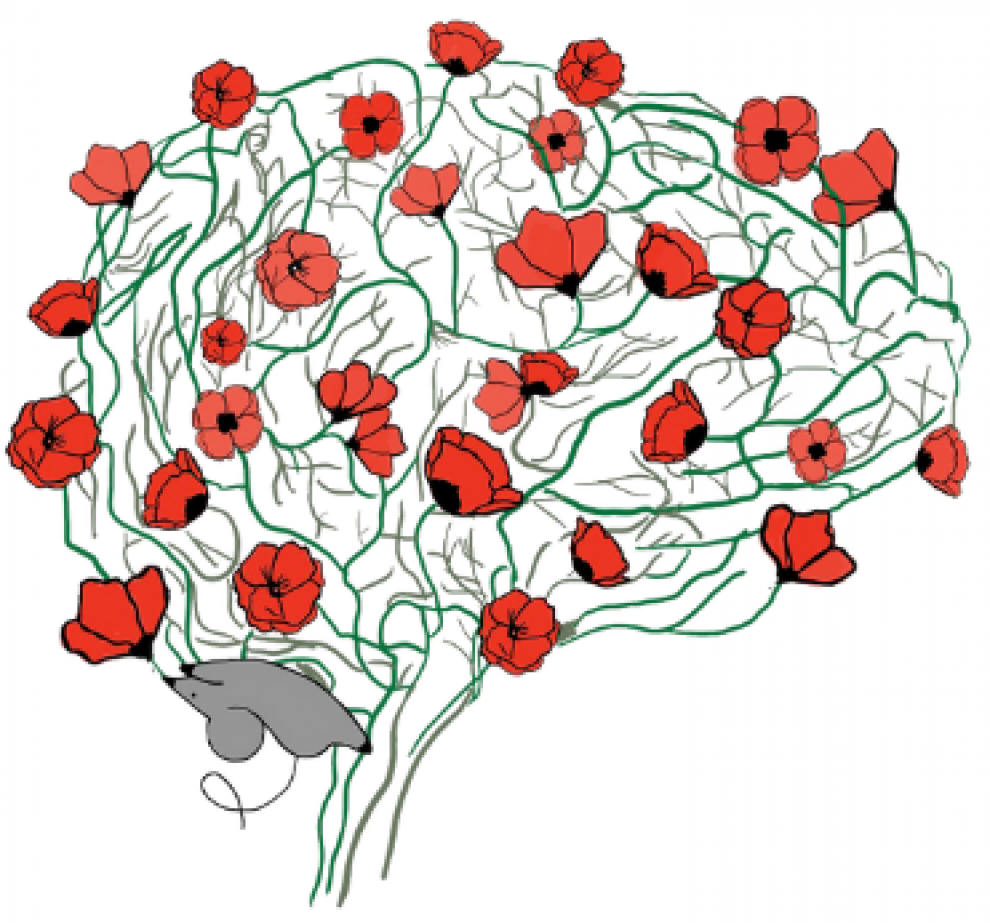WILLIAMS COLLEGE
PSYC 413: The Resilient Mind ( Fall 2020)
In this seminar we will explore the psychological, environmental and biological variables that shape an individual’s response to stress and/or adversity. We will discuss how factors such as personality, coping style, social network/community, gender, brain mechanisms, and genes can influence one’s ability to adapt and recover from a crisis. Students will critically examine depictions of resilience in popular literature and film, and employ empirical scientific articles from across multiple approaches and sub-disciplines of psychology to delve deeper into their analyses. Class meetings will be primarily discussion based and student-led, with the central goal of developing skills in forming and communicating evidence-based arguments.
PSYC 313 / NSCI 313 Opioids and the Opioid Crisis The Neuroscience Behind an Epidemic (Spring 2020, Spring 2021)
Opioid misuse, including addiction, has emerged as a major health epidemic in the United States. This course will explore the science of opioids as well as the historical and societal context surrounding their use and abuse. We will examine the neurobiological mechanisms through which opioids interact with pain pathways and reward circuits within the brain and we will explore how changes in these systems contribute to opioid tolerance, dependence, and addiction. We will consider how genetic, environmental and behavioral factors can powerfully influence these processes. Finally, we will consider alternative approaches to pain management as well as interventions for the treatment of opioid abuse. Students will be expected to design and conduct an empirical project related to the course material. Critical evaluation of peer-reviewed primary literature from animal and human studies will serve as a foundation for class discussions. Evaluation will be based on class presentations, participation in discussions and empirical projects, written assignments, and a poster presentation of the empirical project.
NSCI 201 / BIOL 212 / PSYC 212 Neuroscience (Fall 2019, Fall 2020)
A study of the relationship between brain, mind, and behavior. Topics include a survey of the structure and function of the nervous system, basic neurophysiology, development, learning and memory, sensory and motor systems, consciousness and clinical disorders such as schizophrenia, autism, Parkinson’s disease, and addiction. The laboratory focuses on current topics in neuroscience.
NSCI 401 Topics in Neuroscience: Stress Susceptibility and Resilience (Fall 2019)
In this capstone course we will explore several topics related to the theme of “Stress Susceptibility and Resilience”. Each week we will focus on a particular research area to discuss primary source literature that highlights different components of the brain stress response system and their role in the pathophysiology of stress-related disorders. The objectives of this course are to 1) engage in critical analysis and discussion of the scientific literature relating to the field of neuroscience, 2) propose new research questions that build and expand upon the existing body of work, and 3) to develop skills in communicating (speaking, presenting, writing) scientific ideas in a way that is engaging and accessible to your audience. These goals will be accomplished through a variety of activities including weekly writing assignments and group discussions, journal club presentations, and an independent research proposal.
RUTGERS UNIVERSITY- CAMDEN
50: 120:396/ 50:120:596 Special Topics in Biology (Spring 2018)
This special topics course will approach neuropharmacology from three different directions: sensory systems, pain, and addiction, with a focus on the impact of them on society. Students will learn basic neuroanatomy, neurophysiology, and neuropharmacology. These concepts will first be used to explore how sensory systems work with a focus on pain sensation. They will then be used to explore drugs of abuse and the neuroscience of addiction. The class will focus on how the chronic pain epidemic is driving increased use of prescription opioids and contributing the opioid epidemic across the country, Philadelphia, and New Jersey. The class will include a combination of lecture and discussion around recent scientific publications, journalistic articles, and recent news of how the US is addressing these issues. Student assessments will include short weekly quizzes and a final written paper.
DELAWARE COUNTY COMMUNITY COLLEGE
BIO 100 Biological Sciences (Fall 2017)
Students in this course will explore the following aspects of biology: the organization of life, the development of living organisms, the transmission of traits, evolution, behavior and ecology. This course is intended for the non-science degrees. BIO 100 should not be taken in conjunction with BIO 110 or BIO 111. Upon successful completion of this course, students should be able to: Analyze the characteristics of life as currently understood. Relate the life characteristics to the simplest level of existence: the single cell. Explain various patterns of reproduction among plants and animals. Evaluate various techniques of population control. Explore the mechanism by which traits are transmitted from parent to offspring. Summarize the causes and effects of various types of mutations. Trace the history of the modern concept of evolution. Survey the system of classification of plants and animals. Interpret behavior as an illustration of the modern concept of evolution. Relate the sources and the effects of pollutants to the quality of the environment. Demonstrate an understanding of laboratory experiments as they relate to the biological concepts presented in the above competencies.
